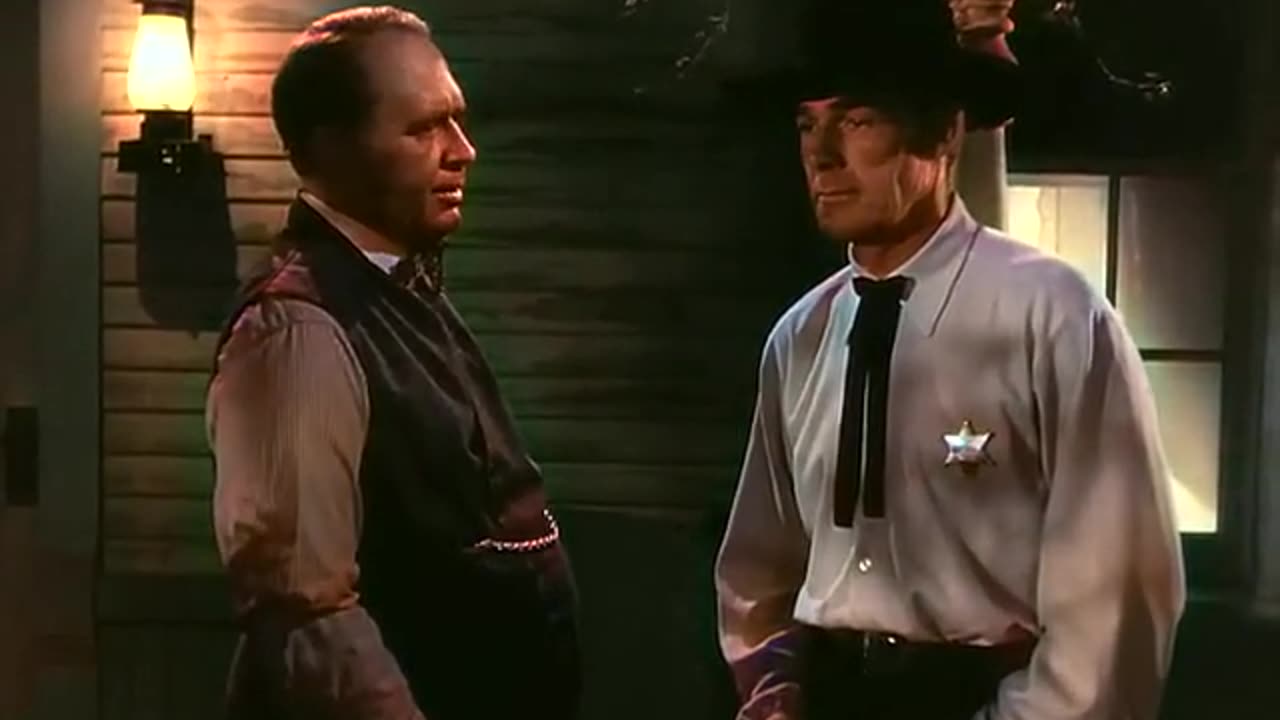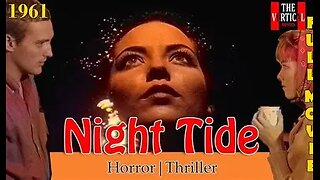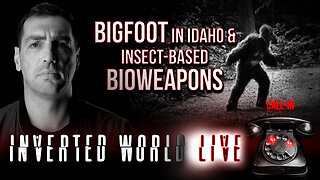Premium Only Content

Abilene Town (American Western, 1946)
Abilene Town (1946) is a classic American Western that captures the rugged spirit of the post-Civil War frontier with a mix of action, romance, and social tension.
Abilene Town is firmly rooted in the Western genre, specifically a post-Civil War cattle town drama. It blends elements of action (gunfights, fistfights, and a cattle stampede), romance (a love triangle), and social conflict (cattlemen vs. homesteaders), with a touch of light comedy through its colorful supporting characters. It’s a B-movie Western, meaning it was made on a modest budget but punches above its weight with a tight script and strong performances.
Plot
Set in 1870 in Abilene, Kansas, a bustling cattle town at the end of the Chisholm Trail, the story follows Marshal Dan Mitchell as he navigates escalating tensions between two groups: the rowdy cattlemen, who rely on open ranges for their herds, and the incoming homesteaders, who want to settle and fence the land for farming. The town is literally divided, with cattlemen and cowboys carousing on one side (saloons, gambling) and townsfolk, including merchants and churchgoers, on the other.
Dan strives to keep the peace as conflicts flare—cattlemen burn homesteads, a murder sparks revenge threats, and the arrival of new settlers upsets the fragile truce. Complicating matters is Dan’s personal life: he’s torn between Rita, a fiery saloon singer who thrives in the wild side of town, and Sherry, the wholesome daughter of a merchant who represents the town’s future. The ineffective county sheriff, Bravo Trimble, prefers cards to law enforcement, leaving Dan to handle crises like tracking a fugitive and facing down a cattle baron’s hired guns.
The climax builds to a showdown where Dan, with help from Rita and the homesteaders, forces a resolution to secure Abilene’s future as a stable community. The film explores themes of progress vs. tradition and the taming of the frontier, wrapped in a fast-paced, action-driven narrative.
Cast
The ensemble is packed with Western stalwarts and rising stars:
Randolph Scott as Dan Mitchell: The stoic, principled marshal. Scott, a Western icon, brings his trademark grit and charm.
Ann Dvorak as Rita: The spirited saloon singer. Dvorak shines in musical numbers like “I Love It Out Here in the West.”
Rhonda Fleming as Sherry Balder: The merchant’s daughter, representing domesticity. Fleming’s early role shows her radiant presence.
Edgar Buchanan as Bravo Trimble: The card-playing, cowardly sheriff who steals scenes with his comic timing.
Lloyd Bridges as Henry Dreiser: A fiery homesteader leader. Bridges, pre-blacklist, adds youthful energy.
Supporting players include Howard Freeman (Ed Balder, Sherry’s father), Richard Hale (Charlie Fair, saloon owner), Jack Lambert (Jet Younger, a hired gun), and Dick Curtis (Cap Ryker, cattle boss).
Fun Facts
Based on a Novel: The film is adapted from Ernest Haycox’s 1941 novel Trail Town, but it simplifies the book’s complex plot. Haycox’s work also inspired the classic Western Stagecoach (1939).
Eisenhower Connection: Abilene, Kansas, was the hometown of General Dwight D. Eisenhower. For the film’s premiere on January 14, 1946, in Abilene, Eisenhower reportedly attended alongside Randolph Scott and other cast members.
Ann Dvorak’s Musical Role: Dvorak, known for dramas like Scarface (1932), got to flex her singing and dancing skills, performing multiple numbers. Her high-buttoned, high-heeled shoes were praised for their 1870 authenticity by critics.
Historical Context: The real Abilene was a wild cow town from 1867–1872, with lawmen like Tom “Bear” Smith (killed in 1870) and Wild Bill Hickok (1871). The film nods to this by portraying Dan as a Hickok-like figure, though it takes liberties with history.
Lloyd Bridges’ Early Role: Bridges, later famous for Sea Hunt and Airplane!, was a rising star here. His career faced a setback during the 1950s blacklist, but he bounced back as a Hollywood legend and father to Beau and Jeff Bridges.
B-Movie Charm: Shot in black-and-white on a tight budget, the film uses stock footage for some action scenes, which critics noted but forgave due to its energy. A colorized version exists today.
Critical Reception: Reviews in 1946 were mostly positive. Variety called it a “rip-snorting, spectacular meller,” and the Chicago Tribune praised its authenticity, though some felt the romantic ending was overly sentimental.
Western Tropes: The film leans into classics like the saloon brawl, a love triangle, and a cattle stampede, but it’s notable for its focus on economic conflict (cattle vs. crops) rather than just outlaws.
Director’s Legacy: Edwin L. Marin directed several Randolph Scott Westerns, including Canadian Pacific and The Cariboo Trail. He died young at 52, five years after Abilene Town.
Cultural Snapshot: The film reflects 1940s optimism about “civilizing” the West, though modern viewers might note its simplistic take on settlement, ignoring Native American displacement.
Abilene Town is a solid, entertaining Western that balances action and character drama, elevated by Scott’s steady presence and a lively supporting cast. It’s a time capsule of the genre’s golden age, perfect for fans of frontier tales.
-
 1:25:24
1:25:24
Silver Screen Echoes
18 days agoNight Tide (Horror/Fantasy, 1961)
77 -
 36:57
36:57
The Pascal Show
1 day ago $0.51 earned'THERE'S NOTHING TO HIDE?!' Trump SUDDENLY Urges House Republicans To Vote Release Epstein Files
6.77K1 -
 2:50:17
2:50:17
FreshandFit
13 hours agoClavicular Rates The Entire Panel’s Looks & They Get TRIGGERED
302K109 -
 2:22:44
2:22:44
Badlands Media
14 hours agoDevolution Power Hour Ep. 408: Immigration Panic, Epstein Optics & the Narrative Unraveling
103K24 -
 2:06:57
2:06:57
Inverted World Live
8 hours agoBigfoot in Idaho & Insect-Based Bioweapons | Ep. 144
92.9K5 -
 4:02:49
4:02:49
Akademiks
6 hours agoMeg Thee Stallion Back LYING again? Offset vs Finesse2x. 6ix9ine house robbed.. HERES WHO DID IT
42.2K2 -
 2:57:51
2:57:51
TimcastIRL
8 hours agoGOP Rep Threatens Hillary Clinton With CRIMINAL CHARGES Over Epstein | Timcast IRL
268K107 -
 2:36:45
2:36:45
Laura Loomer
8 hours agoEP157: Marjorie TRAITOR Greene Turns On Trump
48.1K104 -
 1:35:44
1:35:44
Tucker Carlson
8 hours agoWhy Is Nick Fuentes So Popular? Nikki Haley's Son Explains.
102K565 -
 41:11
41:11
T-SPLY
6 hours agoProtesters Clash With Border Patrol In Charlotte!
35.8K33